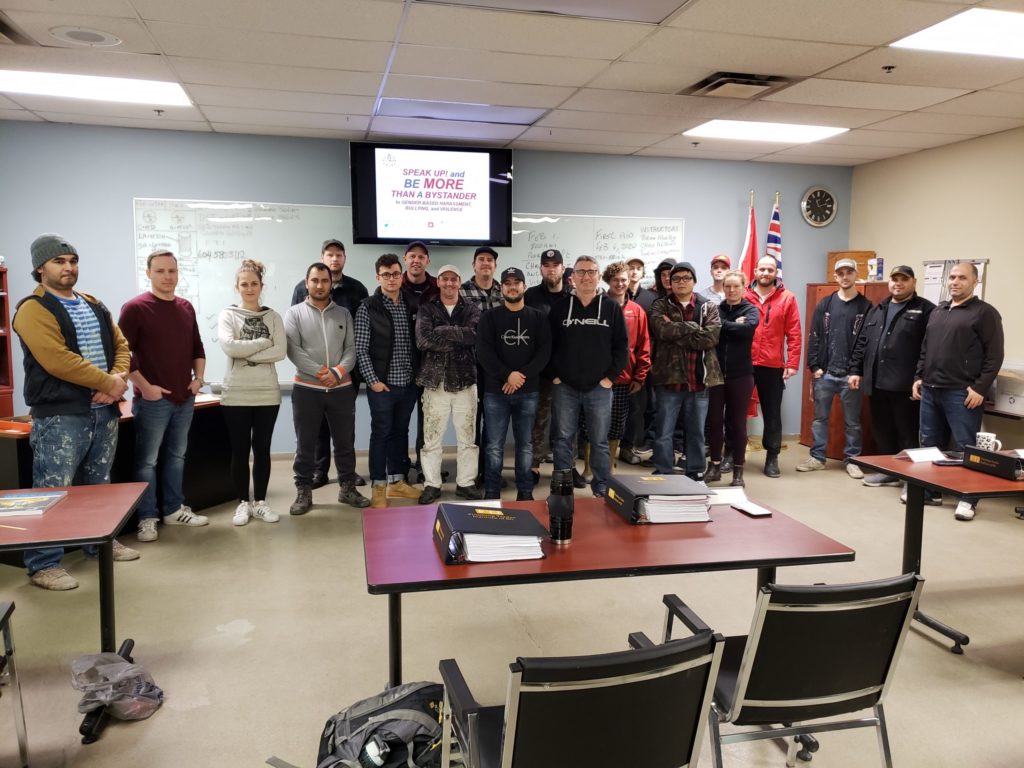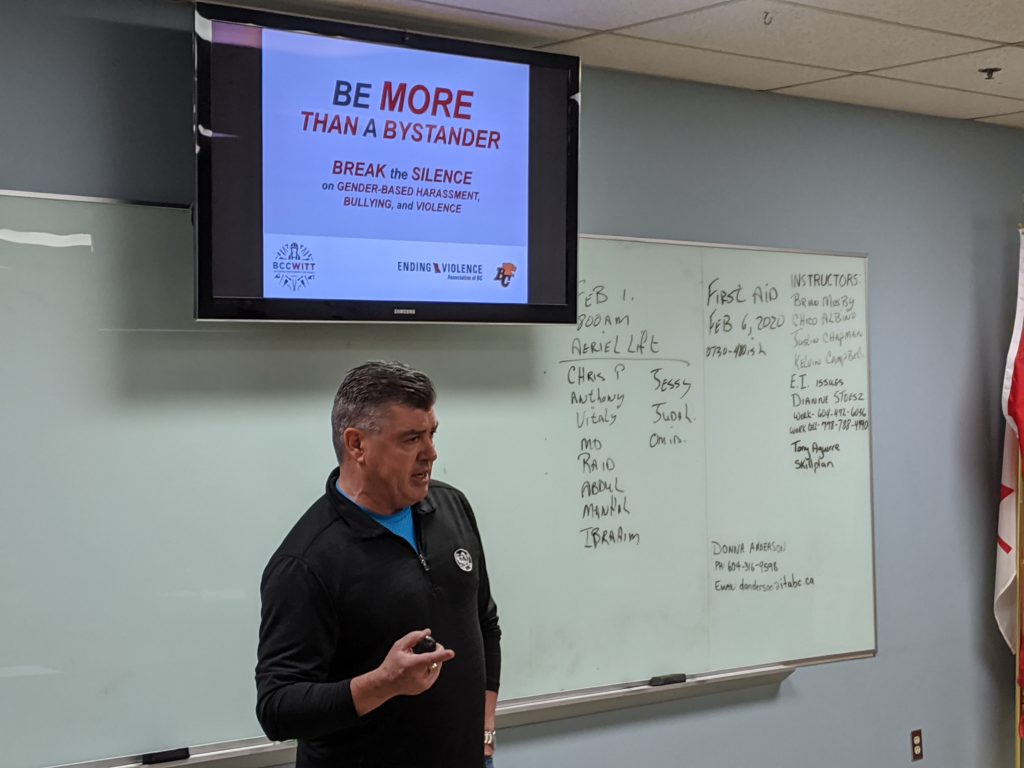A message from CBTU:
| Budget 2021, COVID-19 Supports, Elections and Cancellations 2021 is shaping up to be a busy year in Ottawa, with the Federal Government undergoing pre-budget consultations ahead of the expected Budget release in March. CBTU has outlined our Budget priorities here and the Canadian Executive Board will be busy over the coming weeks, meeting with Cabinet Ministers to ensure our priorities are heard and considered. HEALTH AND SAFETY DURING THE PANDEMIC COVID-19, the slow roll out of vaccines and daily case counts continue to dominate the news cycle. Early on, the construction industry was deemed essential. This put the pressure on our local unions to work with employers and the government to address health and safety. Thankfully, the Building Trades continues to keep our members safe with very low case counts spread through the industry as outlined in our CBTU database here. This week, with rapid testing being rolled out across the country, we understand the concern felt by members about having to miss work due to COVID-19. In response, the CBTU has outlined the various government supports that employees may access should they miss work due to COVID-19 illness or even COVID-19 layoffs due to construction site closures. We urge you to share this information and these infographics, with your members. PIPELINES The other item that has been dominating the news lately is Enbridge’s Line 5. CBTU participated in Enbridge’s recent letter campaign, urging the Canadian government to engage with their American counterparts to ensure Line 5 is not shut down by the State of Michigan. Line 5 is not only important to providing roughly half the oil in Ontario and Quebec, but the estimated number of spinoff jobs in these two provinces is over 20,000. CBTU is working closely with provincial and state building trades councils to coordinate our efforts on Line 5 and will continue to keep you updated. WORKFORCE DEVELOPMENT NABTU’s Tradeswomen’s Committee and Apprenticeship and Training Committee created a new initiative – the Tradeswomen Heroes Award – to honour the dedicated tradeswomen within NABTU’s 14 affiliate unions. Local Union leaders can learn more about how to nominate a tradeswomen, here. GRANTS AND FINANCIAL SUPPORT FOR APPRENTICES Those starting out in the trade not only are learning their craft, but many are managing household budgets while trying to complete their training. Understanding the financial challenges that have only heightened with the pandemic, the CBTU has compiled a report listing the grants and financial supports available for apprentices on our website here. The Grants and Financial Support Available for Apprentices report includes both Federal and Provincial programs and credits. We encourage you to share this with your local unions, training centres and various committees. These provisions will help keep apprentices in training programs and aid them during a tough post-COVID recovery. Stay safe, Sean |
| Budget 2021, aides en temps de pandémie, élections et annulations L’année 2021 s’annonce chargée à Ottawa. Le gouvernement fédéral a commencé ses consultations prébudgétaires en vue de la publication de son budget prévue pour mars. Les SMCC ont fait connaître leurs priorités à cet égard (que anglais) et les prochaines semaines s’annoncent occupées pour le Conseil exécutif puisqu’il rencontrera les ministres du Cabinet pour s’assurer que nos priorités seront bien entendues et prises en compte. SANTÉ ET SÛRETÉ EN TEMPS DE PANDÉMIE La COVID-19, le lent déploiement de la campagne de vaccination et le compte quotidien de nouveaux cas continuent de faire les grands titres. Dès le début, l’industrie de la construction a été jugée essentielle, ce qui a forcé nos syndicats locaux à collaborer avec les employeurs et le gouvernement sur les questions de santé et de sûreté pour nos travailleurs et travailleuses. Heureusement, le compte des cas dans notre industrie est très bas et nos membres restent en sûreté, comme l’indique notre base de données (que anglais). Les tests rapides sont utilisés à partir de cette semaine partout au pays et nous savons que nos membres sont préoccupés par le fait qu’ils pourraient devoir s’absenter du travail à cause de la COVID-19. Pour répondre à cette préoccupation, les SMCC ont exposé les différents programmes d’aide gouvernementale auxquels les employé(e)s pourraient avoir accès s’ils ou elles devaient s’absenter du travail à cause de la COVID‑19 ou être licencié(e)s pour cause de fermeture de chantiers. Nous vous encourageons à communiquer cette information de même que l’infographie à vos membres. PIPELINES L’autre sujet qui a fait les manchettes dernièrement est Enbridge Line 5. Les SMCC ont participé à la récente campagne épistolaire https://www.enbridge.com/keepline5open visant à demander au gouvernement du Canada de s’engager avec ses homologues des États‑Unis à ce que la Line 5 ne soit pas fermée par l’État du Michigan. Le projet de Line 5 est important non seulement parce qu’il assurerait la moitié de l’approvisionnement en pétrole de l’Ontario et du Québec, mais également en raison des 20 000 emplois qui en découleraient dans ces provinces. Les SMCC travaillent étroitement avec les conseils des métiers de la construction des États et des provinces dans le but de coordonner les efforts à cet égard, et nous vous tiendrons au courant des développements. PERFECTIONNEMENT DE LA MAIN‑D’ŒUVRE Le comité des femmes de métier et le comité de l’apprentissage et de la formation des NABTU ont lancé une initiative : le « Tradeswomen Heroes Award » (trad. : Prix des héroïnes des métiers non traditionnels) pour honorer les femmes de métier engagées au sein des 14 syndicats affiliés des NABTU. Les dirigeant(e)s des syndicats locaux trouveront de l’information sur la manière de présenter la candidature d’une femme de métier ici SUBVENTIONS ET AIDE FINANCIÈRE POUR LES APPRENTI(E)S Ceux et celles qui commencent dans un métier ne font pas qu’en apprendre les rudiments; nombre d’entre eux ou d’entre elles ont un budget familial à gérer tout en suivant leur formation. Conscients des défis financiers qui se sont multipliés avec la pandémie, les SMCC ont compilé la liste des subventions et des aides financières offertes aux apprenti(e)s sur leur site Web. Cette liste comprend les programmes et les crédits offerts par les gouvernements fédéral et provinciaux. Nous vous invitons à communiquer cette information à vos syndicats locaux, centres de formation et comités. Ces dispositions contribueront à maintenir les apprenti(e)s en formation et les soutiendront pendant la difficile reprise économique qui suivra la COVID‑19. Veillez à votre sécurité, Sean |



Recent Comments